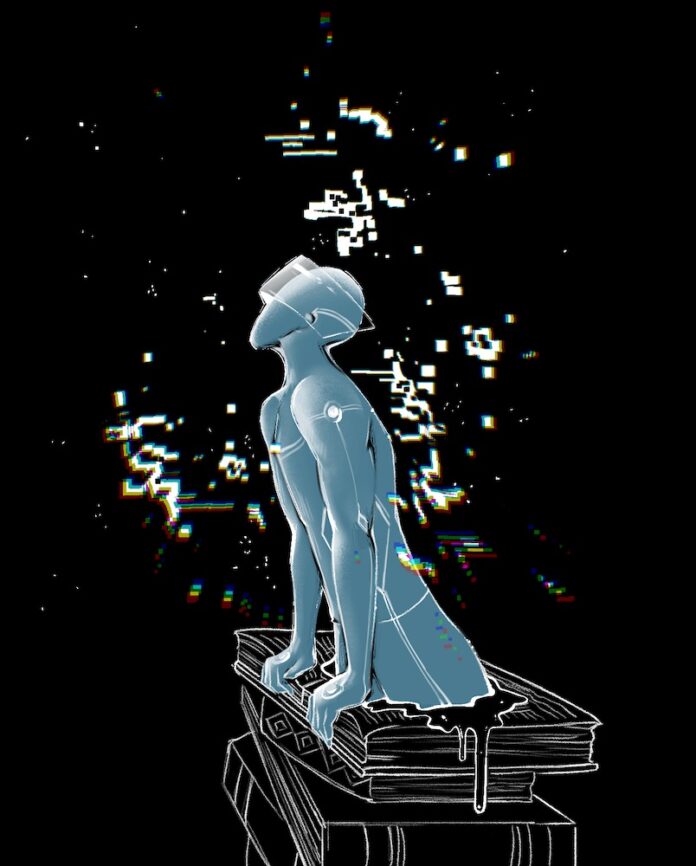During my college search, I knew that I wanted to be a fantasy and sci-fi novelist. I emailed creative writing professors from all the schools I applied to, bringing up my passion and asking what support I could expect. It felt like bashing my head into a wall as I got rebuffed by vagaries about “broadening my horizons” and “searching for more productive genres.” I even found that schools with dedicated creative writing majors typically focused on short fiction, creative non-fiction or realistic fiction. Rarely do fantasy and sci-fi make it into the mix of classes — whether to be analyzed, created or otherwise engaged with — despite their incredible significance within society. This needs to change.
I understood all this before I arrived at Occidental. In fact, I knew it before I even applied. I expected to not find the exact classes I wanted, and my expectations haven’t changed. Occidental has large gaps in its acceptance of fantasy and sci-fi genres, but these genres shouldn’t be excluded from literary analysis and creative representation.
And they are excluded. Occidental makes a point of diversifying its course list, and still, I could only find a few classes with elements of fantasy or sci-fi. Granted, of those few that I could find, I have been rather impressed. I’m currently taking “Topic: The Dystopian Novel,” which has been very enlightening both in regards to society as a whole and the way that I craft my own stories — and I know that other classes in the English department such as “Afrofuturism” also focus on works of literature within the fantasy and sci-fi bubble. Yet, even while listing famous science-fiction writer Octavia Butler as an author that students will read in the class, the term science-fiction isn’t mentioned once in the course description.
Don’t get me wrong, the fact that the college has taken this step across the boundary of old literature and started analyzing contemporary creative genres is fantastic. It offers students the opportunity to engage with the ever-evolving literary allegories of the modern world in a way that can easily get lost in the deluge of academia, and pushes the college mentality in the right direction.
But it’s not enough. Countless brilliant stories fall through the cracks in college course lists, and with them fall their complex metaphors, meanings, representation and culture. Fantasy stories are at the forefront of this list, with sci-fi stories right there behind them.
People might dismiss these genres by calling them “genre fiction“ rather than “literary fiction,” meant for entertainment and not study. This evaluation is partially correct. Science fiction and fantasy are entertainment — but so are music, theater and film. Why does something being entertainment have to reduce its academic value? Do we not spend much of our free time seeking entertainment as a society? Do we not look to our sources of entertainment for inspiration and motivation? And, most importantly, do we not demand that these sources of entertainment serve as responsible informers of culture? When C. S. Lewis buries deep religious allegory into “The Chronicles of Narnia”, this has cultural context and influence just as it does when William Golding alludes to religion in “Lord of the Flies.” Often, the impact that an incredibly famous fantasy series like “The Chronicles of Narnia” can even be greater, due to the casual way that readers consume them.
Fantasy and science fiction are in fact far from the least influential genres. On Kindle, 14 subgenres of fantasy and science fiction rank in the top 100 most competitive book markets, with the highest being paranormal and urban fantasy ranked at eighth — and these genres are only growing.
Why, then, should we not value these genres in academic spaces as we do other meaningful forms of entertainment? They deserve class time dedicated to them just as much as any other genre of literature. They deserve specific courses just as much as any other genre of literature. They deserve academic respect just as much as any other genre of literature.
If professors and students find the idea of branching out to examine more contemporary fantasy and sci-fi genres unappealing, it may be because the common mentality of academia focuses too much on literary fiction, analyzing only those texts that fit within the preconceived canon.
For people who do find themselves in that position of disinterest, however, I challenge you to try it. Try considering the meaning behind the works of literary art that exist in these genres. Try picking up a sci-fi or fantasy book up and reading it. See how it is. Maybe you’ll have fun. Maybe it’ll make you think. Or — bear with me here — maybe you can do both at the same time.
![]()































